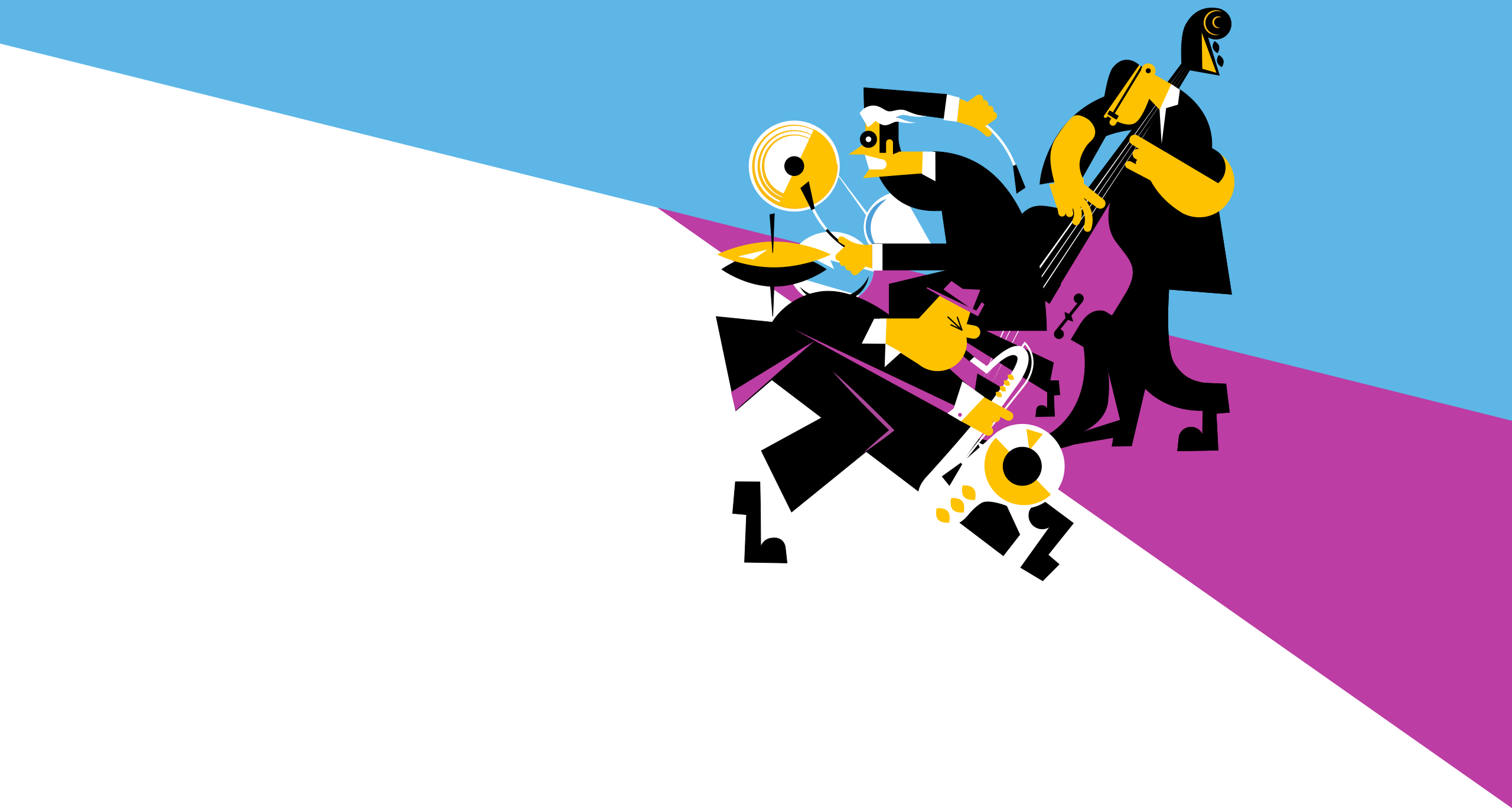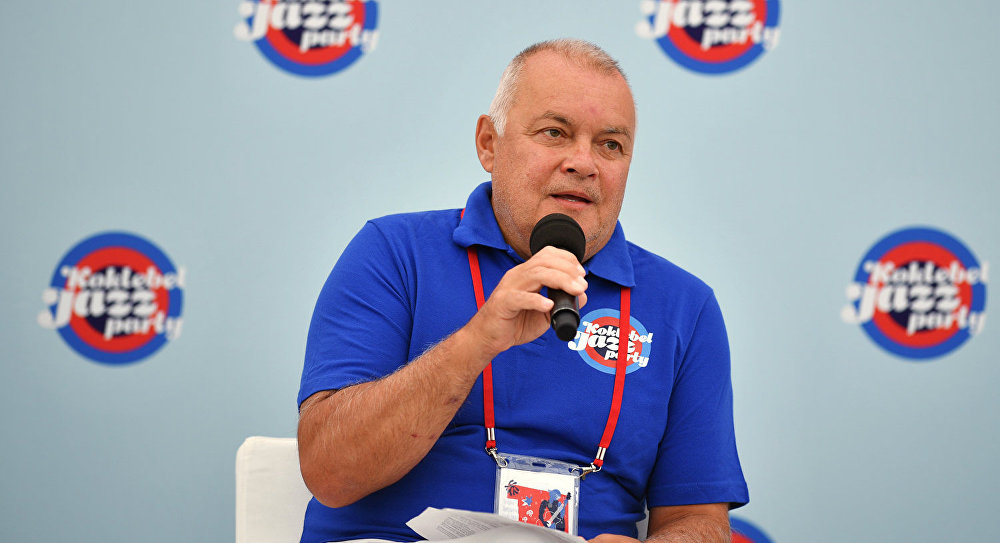Dmitry Kiselev, Director General of Rossiya Segodnya International Information Agency and founder of the Koktebel Jazz Party, discusses the festival's organization, plans for the future and programs to support Koktebel.
Question: Mr. Kiselev, Red Square Group organized the festival for the second year now. What do you think about the organization of the event?
Dmitry Kiselev: As far as I'm concerned, it was quite successful. The fact that they have organized the festival for the second year confirms that everything was very good the first year.
In 2014, Rossiya Segodnya organized the festival with its own resources. I founded the festival in 2003 and later provided my Ukrainian friends with the brand and an organizing committee because I'm not a professional producer myself. Nevertheless, the agency managed to organize an outstanding festival in 2014, and we thought this was necessary because the people of Koktebel and Crimea wanted to know if the festival would continue under Russia, like when the peninsula was part of Ukraine. I replied that it would continue, and that everything would be the same.
We renamed the festival Koktebel Jazz Party, registered it as an agency brand, enlisted the support of the Russian Ministry of Culture, quickly found sponsors. We organized the event with extra-budgetary funding.
After we realized the depth of the challenge, and that the agency was not a producer company, we invited Red Square Group to act as producers. We provide media support, and we have set up our own press center. Nevertheless, the agency retains the brand name.
We are very happy with how this is being done, all the more so as Mikhail Ikonnikov and Sergei Golovnya remain the festival's artistic directors from our agency. Red Square is using its entire potential. And our agency has found sponsors; we still play a big role, and we control the event. This is, certainly, our joint product, and we are supported by other companies, such as VGTRK. Vesti ran a story on the opening of the event, and today's Sunday edition of Vesti news show will discuss the closing day.
Question: Considering the lineup of performers, the 2014 festival was not just a jazz event. On the contrary, the 2015 event mostly featured jazz performers with only one blues song. This year's event mostly focused on jazz. Do you plan to include primarily jazz performers on the program of future festivals?
Dmitry Kiselev: First, there are many types of jazz, including acid jazz. We can make the program more diverse, but we had to indicate from the very beginning that this is primarily a jazz festival, that all its performances should evolve from jazz and be part of jazz. When my Ukrainian colleagues organized the festival in the last few years, it was almost a world music event with folk music, some exotic folk-art bands and a lot of other stuff. Of course, we will augment the program, but the festival will continue to focus on jazz. Otherwise we'll simply lose the format, and a clear direction. We need to stay with the basic concept.
Jazz has become very popular here, and many people are already finding some jazz influence in the rhythmic verses of Russian poet Maximilian Voloshin. Jazz is already an integral part of Koktebel, and it wouldn't make as much sense to move it somewhere else. This is a major jazz event in the post-Soviet space, an international cultural event in Crimea, and we will continue to support this event.
The 15th festival is scheduled for August 18 through August 20, 2017, Friday, Saturday and Sunday.
Question: This year, you invited a group from China. How did you like their performance? Do you plan to invite groups from other countries, whose musicians have not yet taken part in the festival?
Dmitry Kiselev: The festival includes a wide range of countries in general. We've had people from many places, Norwegians, Finns, Germans, all sorts of people. This year, we had this group from China, whose performance was well received.
Of course we would like to reach out wider because America is not the whole world, and jazz is about more than just America, that's for sure. We will have people from the CIS countries, and we'd love to see performers from Ukraine, the ones who always used to come. I realise that they are under a lot of pressure now and coming here could be a big risk for them, but we would nonetheless love to see them here.
Question: This year, like last year, you plan to donate the money raised by the festival to a school. Will you continue this tradition next year and donate the money again?
Dmitry Kiselev: I think we've started a good tradition here. The money raised from the ticket sales will go into the Koktebel Development Fund, because Koktebel is really potentially a great place that should have the status as a symbol of the Silver Age of literary and artistic traditions as embodied by [Maximilian] Voloshin's work. There is also the strong aerospace tradition established by Sergei Korolyov here, after he set a record for flight duration in a glider he built practically with his own hands and with his own design. You also have a glorious and heroic military tradition. A paratrooper unit landed here to divert the enemy. These people were sent to their deaths, but this was their mission during the war.
This place also has great environmental significance. Koktebel lies between two nature reserves — Kara Dag and Tikhaya Bukhta. There are problems there too: During Khrushchev's time, they removed the sand and brought in chalky gravel, which in stormy weather turns the water cloudy and white.
This is one of the most beautiful places in the world, and we want to support it and develop the village, including the school of course, because the school is where the people who will make Koktebel's future are studying, the people who will shape the village's face in the years to come.
This year, after consulting with the parents' committee, we have decided to buy computer monitors, and electronic blackboards, because they are still writing with chalk and wiping it clean with a cloth, which is not very modern. If the school relies only on the money it receives from the state budget it will take nearly 8 years to solve the problem, but we can do it in a year or 18 months.
Here in Koktebel we are also supporting a children's dance school. The children there are dancing in costumes their parents wore in their time, and they constantly have to patch and fix them up, but the kids are winning competitions and are the Crimean champions. I think that the costumes they need are not so expensive. We are dividing the money between the schools — the general school and the dance school.
Question: What would you like to say to the festival's current and future guests?
Dmitry Kiselev: The fact that you come here shows that not only do you love jazz, but you have fallen in love with Koktebel too. You are contributing to the development of both Crimea and Koktebel. Your energy is very much needed here in this place that has such a cult status for Russian and world culture and is still frankly underestimated.
I'm sure that our audience includes some well-off people. After all, jazz used to be called ‘rich man's' music. Let's think about what you can do to help Koktebel and how you can take part in the village's life.
We need to form a community of people who use their energy to keep these glorious traditions going. Koktebel cannot live on the past alone. It must have a future, and we are building this future, so let's create a community. Edvard Radzinsky, Arina Sharapova and Viktor Yerofeyev have all settled here. There's a real attraction here, and if you give it a chance, you'll get infected by Koktebel's spirit too.

